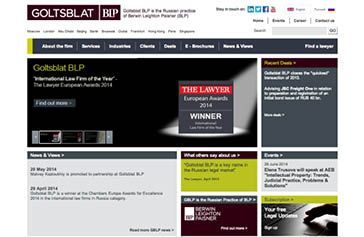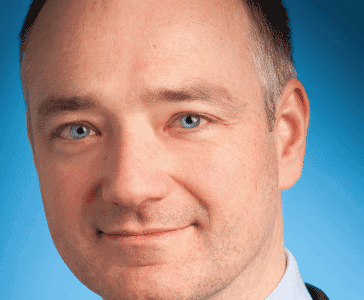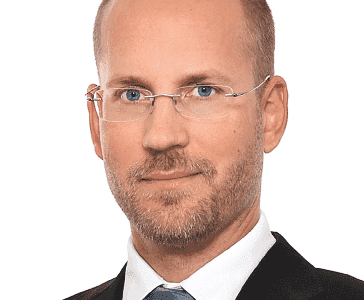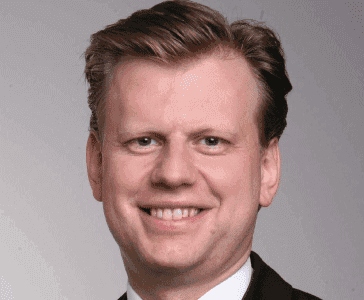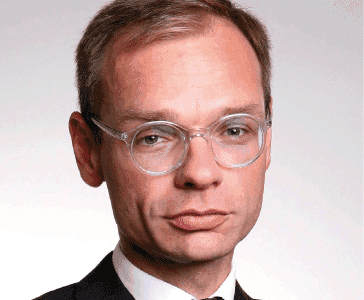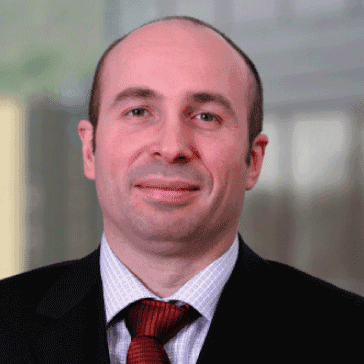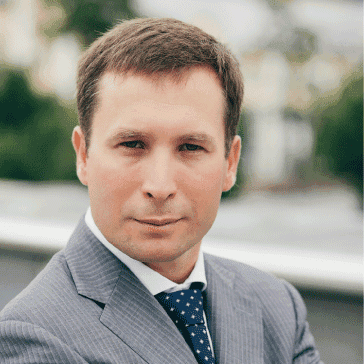Few law firms in Europe were able to completely escape the punishing effects of the recent global financial crisis. Russian lawyers in particular were laid off in unprecedented numbers. And across CEE, firms were forced to take steps to limit risk or adapt to the new reality, including – in some cases – cooling plans to formalize market entry (see: Allen & Overy/Romania), or actively closing offices and withdrawing altogether (see: Beiten Burkhardt/Warsaw).
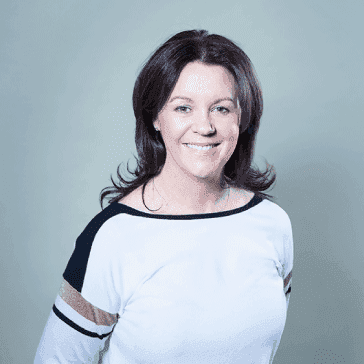
Helen Rodwell, Managing Partner, CMS Cameron McKenna
But while the Czech Republic suffered badly from the crisis, partners at many of the leading Corporate/M&A law firms in the market claim that, by and large, they were able to survive its darkest days without substantive change. Of course, rare is the partner willing to concede financial challenges or anxiety to outsiders, and optimism is de rigeur in conversations about business, so to some extent simple assertions of confidence should be taken with multiple grains of salt.
Still, it appears that the leading law firms in the Czech Republic were able to adapt to this more challenging climate without too great a disruption of their operations by slowing growth, freezing salaries, limiting promotions, and finding other ways to cut costs without laying too many lawyers off – and by fighting harder to win and keep clients than they had to do before.
Of course, some layoffs were inevitable. CMS Cameron McKenna, Baker & Mckenzie, Kocian Solc Balastík (KSB), and Squire Sanders, among others, acknowledge that they were forced to let some of their lawyers go as a direct result of the financial crisis. Other firms as well, while demurring about specific ties between the lawyers who were shown the door and the crisis, made the strategic decision to not replace lawyers who were let go for other reasons – or who left on their own initiative. As a result, most of the top-tier Corporate/M&A firms shrunk somewhat from their 2006 numbers, or, at best grew only slightly (Baker & McKenzie, for instance, has 26 fee-earners, compared to the 23 it had in 2007).
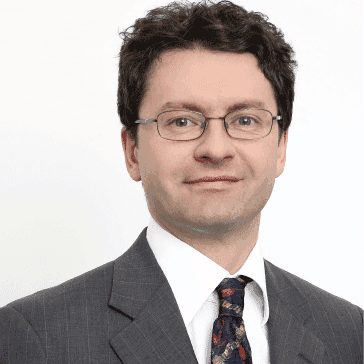
Radan Kubr, Partner, PRK Partners
Alexandr Cesar, the Managing Partner of Baker & McKenzie, says that “everyone in the local market has a different experience regarding the crisis.” But on the whole, partners at most leading firms in the Czech Republic are sanguine. Jiri Hornik, Partner at Czech KSB, says that the crisis was simply not as pronounced in the Czech Republic – no Czech banks went into bankruptcy, for instance – as it was in some neighboring countries. He says that in fact 2010 was KSB’s “most successful year ever”, and Hornik says his firm didn’t start feeling the crisis until 2011. And although it did let a few lawyers go as a result of the crisis, “the only real change was that we stopped growing so aggressively.”
But Hornik says that business is simply not as easy to get as it was pre-crisis, and keeping his firm’s lawyers busy and profitable requires much more aggressive marketing efforts than ever before. In addition to various marketing initiatives, fee caps or blended fees are much more common than before, he says, and KSB, for one, places a greater emphasis when hiring or promoting lawyers on those who can market and generate business than it did before.
Alexandr Cesar at Baker & McKenzie also claims that the crisis had a delayed impact. Then, “in 2010 it really hit, and transactions stopped.” Eventually, last year, he was forced to let 2-3 mid-level and senior lawyers go – and chose not to replace several others who left to go in-house or start their own offices. (Though he notes that the firm did add 5-6 junior lawyers at the same time).
And the changing climate required other cuts as well. Cesar reports renegotiating his office’s lease, eliminating extra bonuses, and freezing salary – instituting what he described as “a more reasonable form of remuneration.” He sighs at the increased time and attention he’s had to spend defending his bills to clients, renegotiating arrangements with service providers, renegotiating his lease, etc.
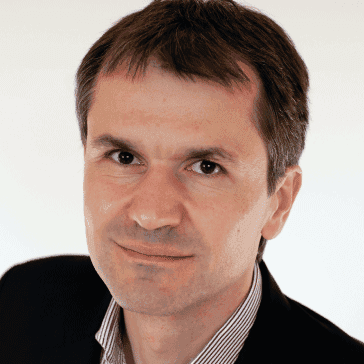
Jiri Hornik, Partner, Kocian Solc Balastik
Nonetheless, he notes with pride that the most recent fiscal year for the firm, which ended in July of 2013, was their “most successful ever” – and was in fact 40% better than 2007. But the cycles, he says, seem to be shortening – this fiscal year has been not nearly as profitable as last – and he’s now seeing noticeable changes in profitability and utilization every 2-3 months.
As a result, Cesar also draws attention to the increased competition for clients, saying that, “across the market you have to fight harder to get the business than you did in 2007.” Six years ago finding business was an easier proposition. Now, Cesar says, “the pie is still the same – but it’s getting smaller and colder.”
Cesar also says of the pressure to lower fees that “sometimes it’s unbelievable.” He rolls his eyes at the low fees he’s obliged to bill his attorneys out at, and jokes that, given their respective rates, he’s given thought to hiring his lawyers to replace the man he pays to check his home gas heating boiler going forward.
Still, he’s confident, and says that the firm’s average business over the 6 years of the crisis has been good.
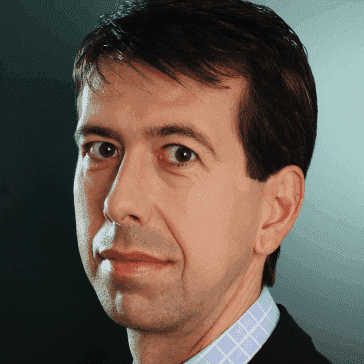
Alexandr Cesar, Partner, Baker & McKenzie
Of course, even the business that does come through the door needs to be done more cheaply than before. Helen Rodwell, the Managing Partner at CMS Cameron McKenna in Prague, says her firm has begun offering different rates for different kinds of work, tailoring its rates to the sophistication of work involved, with the more complex and challenging work costing more. Rodwell also notes that the scrutiny clients are increasingly applying to their bills means that “it is essential that your financial hygiene is in order, as transparency on fees and regular reporting are essential for most clients these days.”
Radan Kubr says his firm, PRK Partners, didn’t lay off any lawyers, though it initially reduced its administrative staff and secretarial team somewhat. The firm also chose not to replace some of the lawyers who left during the crisis who might have been replaced before, “so in terms of size we might be a little bit smaller than we were before, but it’s not going to be a big difference – we’re still the 3rd largest law firm in the Czech Republic, with over 75 lawyers.”
PRK Partners also reviewed other potential sources of savings: “Everything from trying to get better terms for our lease, for our telecom services, looking at our costs to see if they’re reasonable and if there was any possibility to reduce them.” Kubr emphasizes that this review was done as a prophylactic measure, not as a result of actual pain. “We never had to ask for a bank loan, for instance.”
And like everyone else, PRK Partners has also recognized the increased competition for business and the increased importance of marketing. Kubr says, “the growth has slowed down, and the difference is that you have to fight more to get the work, and you always have to be on your top if you really want to keep your reputation and manage to attract new work. It’s definitely not getting easier to get the work and retain the top clients. It’s getting increasingly difficult, but it’s the world we live in.” As a result, he says, the firm has “definitely expanded our marketing efforts.”
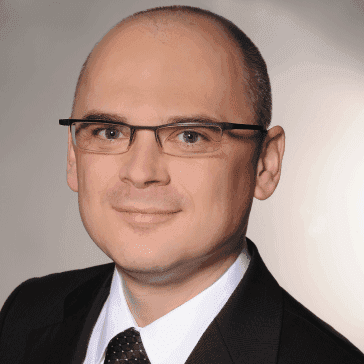
Radek Janecek, Managing Partner, Squire Sanders
The increased demand for lower fees has created real incentive for those firms willing to race to the bottom, Kubr believes, and “many firms in the Czech Republic practice really very aggressive price dumping.” And Kubr, like Cesar, draws attention to the plunging rates of lawyers compared to blue collar workers, albeit in a less jocular way. “We’re not ready to undersell ourselves and to try to match the cheapest offer, because the price levels are just so ridiculous in the Czech Republic that we don’t want to work for the rates of a cleaning woman. If there are other people in the business who are willing to play that game, they can do that, but we’d rather close shop than work for the fees of a janitor.”
Radek Janacek, the Managing Partner of Squire Sanders’ Prague office, rolls his eyes at any suggestion that firms haven’t been forced to adapt to the new economy. “I do think there are changes,” he says. “I don’t think it’s anything like before the Lehman Brothers fall, so that’s just plain stupid to say there’s been no change. The stagnation of the economy continues, and there’s not really been any major pick up in the GDP growth.”
Janacek admits that Squire Sanders was forced to lay off several long-time associates, as well as a mandated overall pay cut for 2009/2010. According to Janacek, “we were unfortunately forced to let some people go who had hit the ceiling. Senior people who never developed their own business or practice, and were impeding the growth of more junior people. We just did that gradually over a couple years. We’ve always been fairly mid-sized – 20 or 25 people – so we could afford to swap one person one year and one person the next year.” As a result, “in terms of size we’re pretty much the same we were 5 years ago, but we’ve gone through fairly big changes.”
Still, the firm saw about a 5% growth in revenue in 2013, Janacek reports, and he expects about the same this year. But he doesn’t expect a much bigger jump, as continued economic stagnation and the increased competition in the market – particularly in the form of new offices split off from the more established players – makes that increasingly difficult. Still, he says with a laugh, he’s “realistically optimistic.”
Janacek’s not the only one. Kubr says that a “small upturn in the Czech Republic … was already felt last year with a surge in acquisition work, so we’re reasonably optimistic that 2013-2014 will be a good year.” Rodwell at CMS Cameron McKenna also points to “a big increase in M&A since last summer”, and says that as a result she is “much more optimistic” than before.
Still, the champagne corks aren’t flying just yet. Cesar concludes with a note of caution, pointing out that “half the articles in the paper are still about the crisis. People are still not hiring. So in the heads of all of us the crisis is not over yet.”


